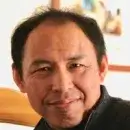
Min Han
Dr. Han has been a faculty member in the department of MCDB at the University of Colorado Boulder since 1991. He was also an investigator of the Howard Hughes Medical Institute between 1997 and 2018. The dynamic research program in his lab has made numerous paradigm-shifting discoveries in unusually diverse research fields, including developmental biology, cell biology, gene regulation, and metabolism. In recent years, his group has employed innovative approaches to discover and analyze multiple novel nutrient response systems and unknown functions associated with fatty acid variants and micronutrients from gut microbes.
Dr. Han received his BS from Beijing University in 1982 and his Ph.D. from UCLA in 1988, where he did pioneer work on histone functions and epigenetics with Michael Grunstein (2018 Lasker Awardee). He did his postdoctoral training with Paul Sternberg at Caltech to study the mechanism by which cell singling regulates developmental pattern formation. He established his lab at the University of Colorado Boulder in 1991 and received several prestigious scholarships. He was also an adjunct professor at the Institute of Developmental Biology and Molecular Medicine at Fudan University between 2003-2016, where he supervised productive mouse genetics research.
Both as a graduate student and postdoctoral fellow, he made landmark discoveries in two different bio-frontiers of the time: epigenetics and developmental genetics. In each case, his own creative thinking was inspired by the exploratory mindset of his mentors and the intellectual freedom they each granted him. Since starting his own lab in 1991, he has followed a philosophy that invertebrate model organisms are best used to address outstanding and underexplored biological problems to identify new paradigms in the relevant fields. Indeed, his lab made numerous risky shifts in research focus between distinct research fields. They were also bold in using approaches across different disciplines and multiple model systems. His students and postdoctoral fellows were highly encouraged to follow their own independent thinking and interests to maximize their potential to carry out innovative research. This philosophy has proven to be exceedingly effective in training future scientists.